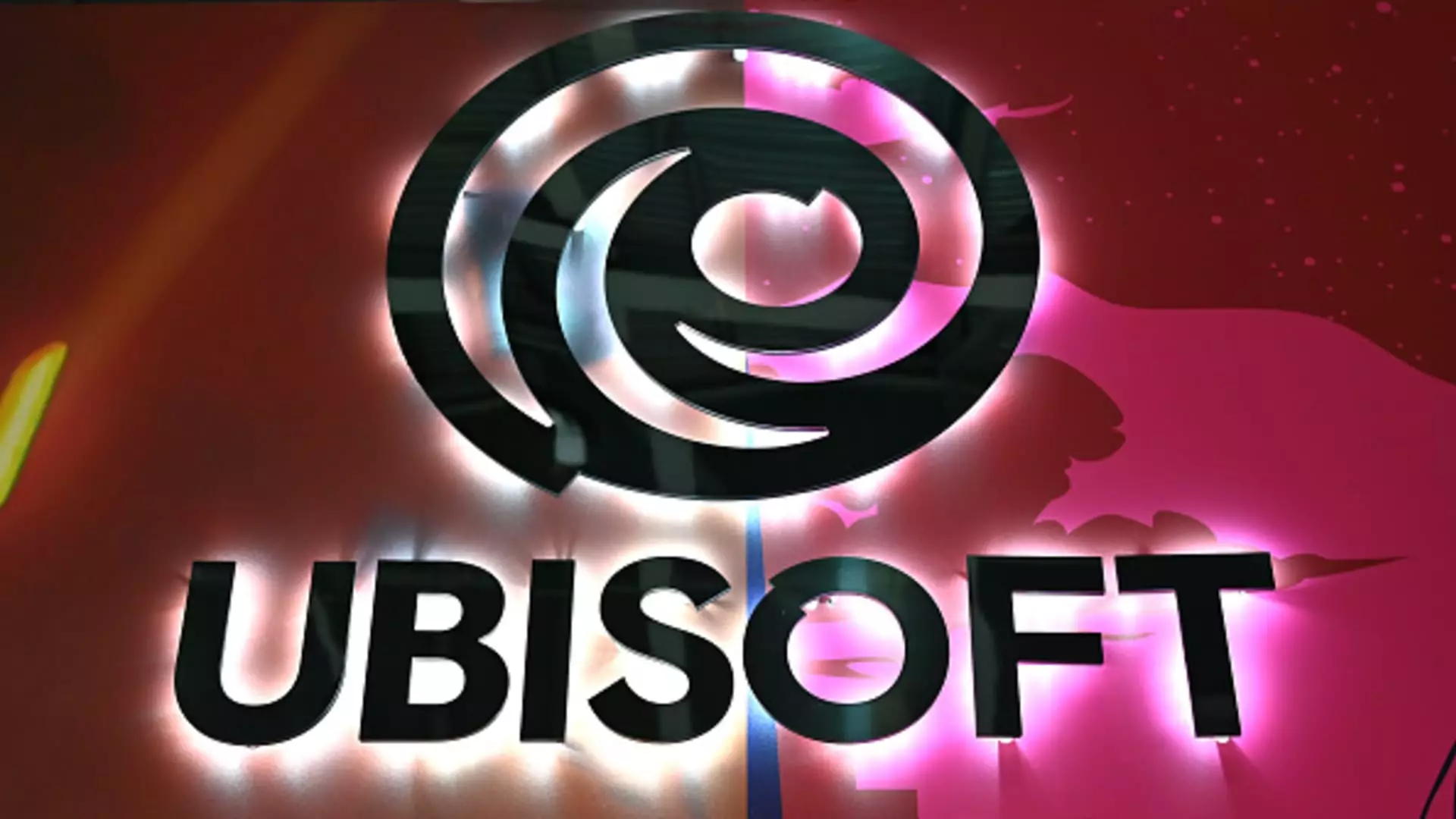The recent surge in Ubisoft’s stock, soaring over 30% within a single day, signals a noteworthy shifting tide in investor sentiment. This spike was triggered by reports suggesting that Tencent and the Guillemot family, both minority stakeholders in the company, are contemplating a buyout. As a company that has faced formidable challenges, including losing over half its market value within the year, such discussions represent both a glimmer of hope and a critical junction in Ubisoft’s history.
Stock fluctuations often reflect underlying company performance and market conditions. In Ubisoft’s case, this increase came alongside stark realities of dwindling investor confidence, exacerbated by alarming reports of mismanagement and a concerning absence of new blockbuster title releases. Despite the optimism generated by the potential backing of Tencent—a tech behemoth known for its leverage in the gaming industry—there remains an undercurrent of skepticism regarding the company’s strategic direction.
Ubisoft, renowned for franchises such as “Assassin’s Creed,” has recently faced substantial scrutiny regarding its game development pipeline and overall effectiveness in management. The announcement of a delayed release for “Assassin’s Creed Shadows,” pushed back to February 2025, sent a ripple of disappointment through the gaming community, emphasizing a harsher reality: the company’s latest offerings have not met expectations. Following the lukewarm launch of “Star Wars Outlaws,” which failed to garner significant interest, the need for innovative and engaging game content becomes increasingly paramount.
Furthermore, the firm’s revised fiscal projections, lowering its guidance for net bookings to approximately 1.95 billion euros, highlight a stark contrast to previous numbers and underscore systemic issues within the company. The market’s muted response to newer games in a landscape that once thrived on rapid technological advancements reflects a broader trend where gamers are gravitating toward established titles rather than exploring new titles.
A Climate of Uncertainty and Investor Activism
The financial strife of Ubisoft has attracted the attention of activist investors, with AJ Investments recently amassing significant shareholder support to impose changes. These investors advocate for a strategic restructuring within Ubisoft, calling for the exploration of partnerships with private equity firms and Tencent. Their open letter, which suggested seeking leadership replacements, underscores the urgency and need for a concerted response to the company’s ongoing underperformance.
Such activism not only highlights the rising discontent among investors but also poses questions about the future leadership of Ubisoft. The acknowledgment by CEO Yves Guillemot regarding the need for “further improvement” indicates that internal reviews are long overdue, reflecting a sensitive corporate environment that may be at risk of losing focus amid external pressures. Leadership transitions could provide fresh perspectives that might invigorate the company’s future trajectory; however, the mere acknowledgment of issues does not equate to effective solutions.
Ubisoft is not alone in facing significant challenges; the gaming industry at large is experiencing a palpable slowdown. According to data from Newzoo, the global games market is anticipated to grow by just 2.1% in 2024—a notable decline from the unprecedented growth witnessed during the pandemic years. Analysts suggest that consumer behavior is shifting, with players increasingly investing time in legacy titles rather than pursuing new releases.
James Lockyer, a technology research analyst, elucidates this notable shift in player engagement, correlating it with economic factors such as the cost of living and diversifying entertainment options. This trend leaves gaming publishers grappling with reduced returns on investment, compelling them to reassess their strategic approaches to capturing and retaining consumer attention. As companies like Ubisoft navigate these turbulent waters, addressing stagnant consumer interest is essential—failing to do so may lead to further erosion of market position.
In light of the myriad challenges Ubisoft faces, a comprehensive and innovative strategy must be prioritized. This includes not only revitalizing its release schedule but also fostering relationships that could potentially stabilize the company amid uncertainty. Exploration of partnerships or acquisitions, particularly with influential stakeholders such as Tencent, may provide the necessary backbone for recovery.
Ultimately, the current discourse surrounding Ubisoft’s potential buyout comes at a crucial time. Whether through restructuring, strategic partnerships, or new product development, the choices made in the coming months will determine the trajectory of one of the most well-known names in the gaming industry. Adaptation and innovation are key; failure to embrace them could solidify Ubisoft’s position as a relic in an ever-evolving market landscape.

